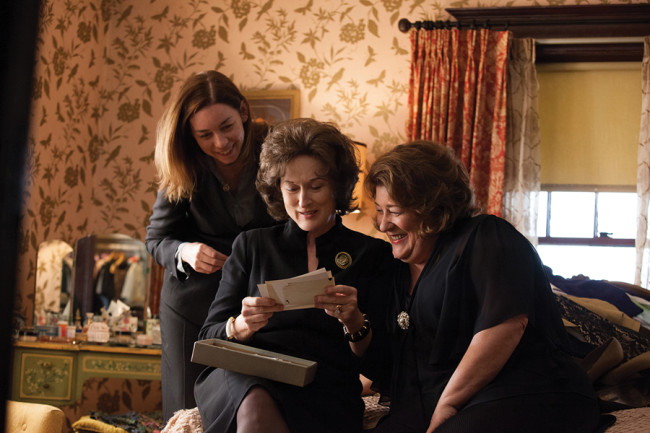
When the Weston family is forced to return to its rural Oklahoma home, mystery morphs into tragedy and the Westons are forced to deal with their rehashed past and a pressing present-day at once.
August: Osage County defined as “the year’s most wicked comedy” is justly labeled. With the patriarch missing, the matriarchs rise, as do their emotions. Meryl Streep plays Violet Weston, the pill-popping mother, and Julia Roberts plays her eldest daughter, Barbara. Streep and Roberts perfectly portray the polarity of emotions present in nearly every facet of the film: between mother and daughter, mind and medicine and simply within life itself.
Osage County seems to be a breeding ground of toxicity. The stagnant and suffocating air that swarms around and inside the Weston home seems to have pervaded those unfortunate souls who were raised there. It is possible however that they are the ones who are breeding it.
The Weston family is eerily similar to one of theatre’s most well known families: that of Shakespeare’s King Lear. What is often recognized as one of Shakespeare’s darkest plays is inarguably a tragedy. Both Lear and August are framed around the fraying and eventual tearing of a family.
Hushed whispers of long-kept family secrets become irrevocably open confessions, unsettling the dust and revealing a surprising lineage of family history. Incest becomes yet another dark secret, that was once kept within blood, is then spilled out for all to see. Even Violet, despite her own blood surging with a swirl of a self-made medical cocktail, is able to see what she is never meant to. “‘I told you,” she says, “‘nobody slips anything by me.’”
Violet’s less-than-observant relatives show a greater blindness to the dark shadows that are creeping in every corner of the Weston house. Other Weston family members are portrayed by less-than-shadowed actors including Chris Cooper, Ewan McGregor and Benedict Cumberbatch. Although they may not be the focal characters of the film, the men are integral in understanding the women of whom they are in some way connected to. Again, these are performances worthy of the limelight they receive.
The lighting and setting of the film itself is also exposing of the story’s hidden yet creeping themes. Shaded windows, a setting sun, nightfall and the bare horizon save the Weston residence are all-telling of the Weston family and the film.
Forbidden affairs, unexpected consequences and death are only a few of the burdens of life in which Tracy Letts’s August touches upon. Perhaps the opening line of the film, one from T.S. Eliot’s “The Hollow Man,” answers all questions best: “Life is very long.”








